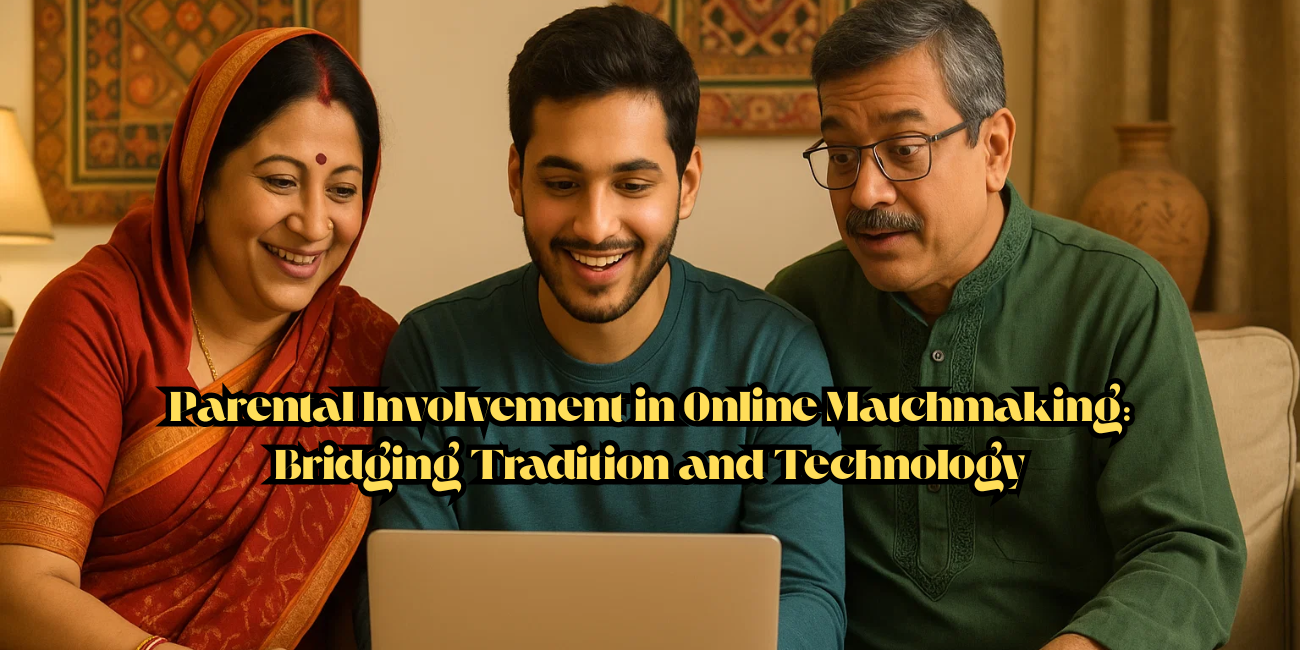
Parental Involvement in Online Matchmaking: Bridging Tradition and Technology
When it comes to marriage in Bangladeshi culture, one thing
is crystal clear: parents will be involved. From investigating the bride
or groom's blood group to knowing if they have a cousin who works at
Grameenphone—moms and dads leave no stone unturned. But what happens when the
traditional process of “seeing the girl” meets the swipe-right world of online
matchmaking?
Welcome to the fascinating, and often hilarious, world of
parental involvement in online matchmaking!
Matchmaking: A Proud Bangladeshi Tradition
Marriage in Bangladesh isn’t just about two people—it’s
about two families, two khandans. The concept of matchmaking has long been a
family affair, complete with tea trays, long glances, and nosy aunties who just
know who’s suitable.
But now, dating apps, matrimonial sites, and social media
profiles have entered the scene. Instead of asking "What is the girl’s
GPA?", parents are now scrolling through biodatas with filters for height,
job location, and preferred skin tone (let's not pretend fairness cream ads
didn’t do their part).
The Online Revolution: From Rishta Aunties to Algorithms
Bangladeshi parents were initially skeptical of online
matchmaking. After all, how could a website or app possibly match the depth of
insight provided by a neighborhood auntie who knows everyone’s business?
But slowly, things began to change. With platforms like MarriageChime,
Biyeta, MatrimonyBD, and even global sites like Shaadi.com
gaining traction, parents started to explore the possibilities. Many now sit
down with their children, jointly reviewing profiles, commenting on profile
pictures, and occasionally asking, "Why did you reject this one? He has an
MBA from North South!"
The Curious Case of the Parent-Approved Profile Picture
Choosing a profile photo can be a diplomatic challenge. The
child wants to appear friendly and confident, while the parent wants modesty,
dignity, and preferably, no sunglasses.
One father reportedly commented, "Ei chobi diye ki
bujha jabe meye namaz pore?" (Will anyone know she prays by looking at
this photo?)
Swipe Right, But Ask Amma First
In many families, the entire process is now a team effort.
Profiles are shortlisted by parents, then vetted by the children. Some apps
even have a parent mode or guardian access, letting parents
create and manage profiles on behalf of their kids.
It’s matchmaking with a twist: part romance, part resume
review, part FBI background check.
Bridging the Gap: Humor, Compromise, and Love
Despite the generational gap, there’s something heartwarming
about this fusion of tradition and technology. Parents, who once clutched
printed biodatas, now navigate dropdown menus and location filters. And
children, who once rolled their eyes at arranged marriages, now share
screenshots with their moms saying, “What do you think of this one?”
Benefits of Parental Involvement in Online Matchmaking
- Safety
& Security: Parents often think with their heads, not just their
hearts. Their instincts can spot red flags.
- Cultural
Compatibility: Parents understand deep-rooted cultural nuances, which
algorithms can't always detect.
- Wider
Network: Let’s face it—our parents have more connections than we do.
- Emotional
Support: Having parents involved can relieve the pressure and turn the
journey into a shared adventure.
The Challenges Are Real Too
Of course, it’s not always smooth sailing.
- Over-involvement:
Some parents might take over the process entirely.
- Tech
Troubles: Not every parent is comfortable using apps.
- Value
Clashes: What the parents see as a "perfect rishta" might
make their child want to move to Mars.
A New Era of Matchmaking
Today’s reality is not about replacing tradition with
technology—it’s about blending the two. It's possible to respect values
while embracing convenience. It’s okay to swipe right, but also ask your
parents what they think.
And in the end, whether it’s through a Facebook group, a
marriage app, or your auntie’s yoga class, love often finds a way.
Final Thoughts: Love, Laughter, and Logged-in Parents
Parental involvement in online matchmaking may sound like a
sitcom premise, but it’s becoming a norm in Bangladeshi households around the
world. It’s a beautiful evolution—showing us that while traditions may be
centuries old, they can still keep up with 5G.
So here’s to parents who set up accounts, swipe with
seriousness, and ask the most important question: “Ei cheleta ke bhalo mone
hochhe toh?” (Do you think this boy seems nice?)
FAQs
1. Are Bangladeshi parents really open to online
matchmaking?
Yes! While some were initially hesitant, many have embraced online platforms
and even participate in the profile selection process.
2. What are the most popular matchmaking apps for
Bangladeshis?
Some top platforms include MarriageChime, Biyeta, MatrimonyBD, and Shaadi.com,
along with niche Facebook groups and community forums.
3. Is it okay to involve parents in online matchmaking?
Absolutely. Their experience, insights, and emotional support can be
invaluable—just keep communication open.
4. How do you balance parental expectations and personal
choices?
Honest conversations, compromise, and mutual respect are key. Find a middle
ground that respects both tradition and individuality.
5. What if my parents aren’t tech-savvy?
You can guide them through the apps or use platforms that offer family-friendly
interfaces or guardian account options.